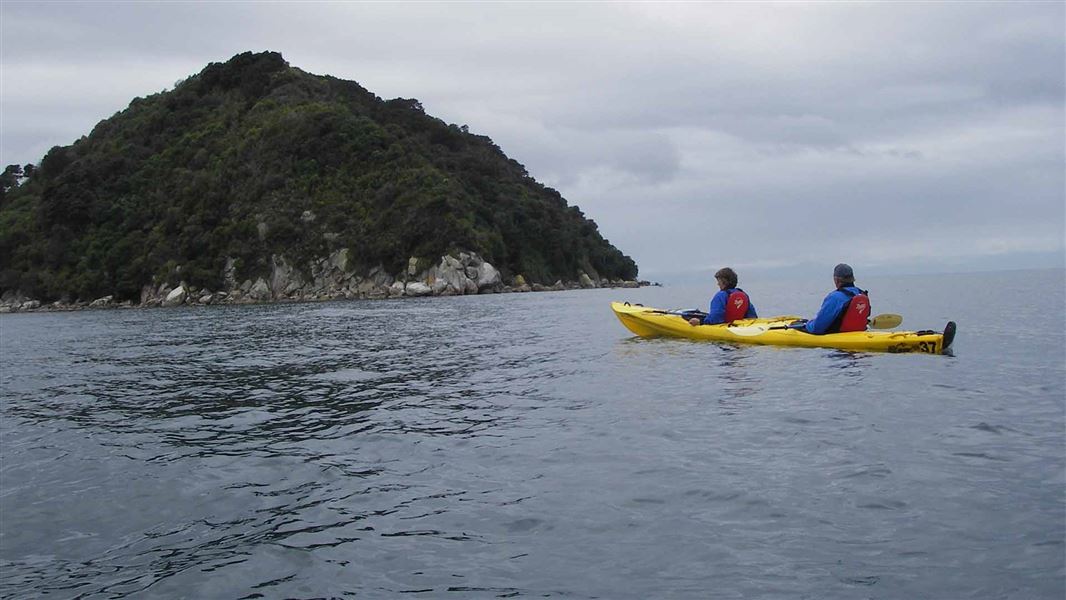Archived content: This media release was accurate on the date of publication.
Date: 15 October 2020
The measures will help deter and detect any illegal fishing in Horoirangi Marine Reserve, between Glenduan and Cable Bay, and Tonga Island Marine Reserve off Abel Tasman National Park.
The marine reserve ranger’s role also includes increasing education about the marine reserves and overseeing scientific monitoring of them.
Signs are being erected at Nelson Marina, Glenduan and Cable Bay to remind people there is a camera keeping watch on Horoirangi Marine Reserve and that fishing is not allowed inside it.
DOC Motueka Operations Manager Chris Golding says it’s preferable to deter people from illegal activity in the first place rather than to catch them at it.
“Horoirangi and Tonga Island marine reserves are treasures of marine life. No taking of marine life is allowed in marine reserves and this enables the marine ecosystems to return to a more natural state and marine species within them to become more abundant.
“The camera on Horoirangi Marine Reserve will increase our ability to identify offenders and gather evidence when illegal activity occurs.
“It’s been found that cameras at other marine reserves have proved a deterrent to illegal activity. Reports of suspected illegal fishing in Kāpiti Marine Reserve declined after a camera was installed in 2018, having peaked the year before.
“We appreciate the help we get from the public in reporting sightings of people illegally fishing within the reserves and we ask them to still call us on 0800 DOCHOT/0800 36 24 68 if they see illegal activity.”
Anyone who breaks the rules in marine reserves can now face fines through infringement notices, an additional enforcement measure to DOC’s existing tools of warning letters and prosecution. The infringement notice fine for fishing in a marine reserve is $600.
Infringement notices can also be issued for many other conservation rule breaches, including breaches of whitebaiting regulations, taking dogs into national parks or taking or causing damage to protected species. Fines range from $200 to $800, depending on the offence.
Offences are first investigated by DOC warranted officers to determine what action is appropriate, depending on the seriousness and circumstances of the offending. If an infringement notice is deemed appropriate, it will then be sent.
DOC is also appointing six marine reserve rangers this year to be based in Kāpiti-Wellington, Auckland, New Plymouth and Christchurch, with a further seven marine reserve rangers to be recruited next year.
Contact
For media enquiries contact:
Email: media@doc.govt.nz
